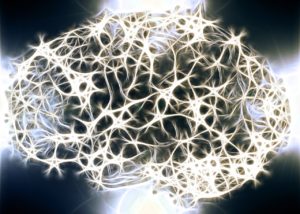
The Science Behind Why It’s So Hard To Get Over Your Ex
 A buddy of mine met a nice woman on Tinder. Her ex had ended the relationship and she was getting back into the dating scene.
A buddy of mine met a nice woman on Tinder. Her ex had ended the relationship and she was getting back into the dating scene.
She couldn’t stand her ex fiance. He was narcissistic, going on numerous dates with employees he was supposed to be managing, and even though she was in many ways the perfect girlfriend, he still ended up taking her for granted and ultimately ended things.
How did my friend know all of these details?
Because she never stopped talking about him. And, she would always find something new to talk about on every date, because she constantly stalked his social media, and the social media of any woman she thought he might be seeing.
Her rational brain declared (probably hourly) “I am over this guy!” Her emotional brain was still engaged to him.
Eventually my friend became tired of being a “side dude” in relation to her ex-boyfriend.
I tell this story not to judge her, but to illustrate how difficult it can be to get over an ex.
In fact, I know men and women both who even 20 years after the fact aren’t over an ex. They may even be married to someone else, with children, and still not really be over an ex. A good percentage of the engaged couples I know would end the engagement in a heartbeat if a particular ex came back into the picture. This may even be an ex they profess to hate.
There’s a good scientific reason why you are stuck on an ex, even when you logically think you can’t stand them.
It’s because humans don’t usually act based on logic. We act based on emotion.
 The emotional parts of the brain (sometimes labelled the limbic system) are powerful, influential, and work subconsciously in many cases. They also happen to be older (in terms of our evolutionary history) than the rational parts, and we share them with other animals.
The emotional parts of the brain (sometimes labelled the limbic system) are powerful, influential, and work subconsciously in many cases. They also happen to be older (in terms of our evolutionary history) than the rational parts, and we share them with other animals.
If you don’t believe me how powerful the emotional brain is, then think of the last time you wanted to lose weight. You may have literally said you hate being fat 1000 times in the last year. But, did you lose the weight? If you’re like most Americans, you haven’t, despite talking about it a lot.
The reason is that your cravings for food come from the older, emotional parts of your brain, and they often win the “tug of war” within our brains.
Cravings for a person, such as an ex, are even more complicated and powerful than other cravings. First of all, I want to explain that attraction isn’t a choice. You don’t sit and contemplate whether you find someone attractive. You either are or you aren’t. You also can’t “talk yourself into” attraction (you can lie to yourself that you’re attracted to someone, but that’s another article). And, for the purposes of this article, you can’t talk yourself out of it either (you can, however, choose to not act on the feeling).
If you don’t believe me, then why is it that you really, really wish you were attracted to your guy friend who is stable and nice, but you just aren’t? Why are you instead attracted to your ex you know isn’t good for you? It’s because attraction is like many other emotional cravings in that it’s a product of evolution, genetics, and social conditioning. As such, it isn’t going to be “logical.”
Now that we have established this, it’s important to know what happens when you’re romantically involved with someone you’re attracted to: your brain changes. To put it bluntly, you go crazy.
To put it more scientifically, your brain and body change chemically in a way that causes you to become singularly focused on that person, to the point where you not only can’t see their flaws, but you crave their attention constantly (and get stressed when you don’t get their attention).
 This is a result of a variety of changes, including dopamine centers lighting up, increased norepinephrine, decreased serotonin, as well as hormonal changes. When you’re in this phase, everything is perfect (to you at least). He’s not an unemployed serial player on probation…no, he’s a misunderstood and charming starving artist who was framed by the police and prosecutors.
This is a result of a variety of changes, including dopamine centers lighting up, increased norepinephrine, decreased serotonin, as well as hormonal changes. When you’re in this phase, everything is perfect (to you at least). He’s not an unemployed serial player on probation…no, he’s a misunderstood and charming starving artist who was framed by the police and prosecutors.
As you bond with him physically (sex, cuddling, etc), your brain releases oxytocin, which creates a strong social and romantic bond. This is the same chemical released when a woman gives birth to a child. So, as you connect with your partner, your brain is releasing chemicals that strongly bond you to this person emotionally and romantically.
Men tend to bond differently, possibly via both oxytocin and, more significantly, vasopressin. The result is still a type of attachment, but the route and manifestation of the bond differ somewhat. To learn more about all of this, I highly recommend the book The Chemistry Between Us.
Now, imagine this relationship ends. The logical part of your brain knows it’s over, and may even declare that you’re over him. However, the emotional parts don’t know it yet. It’s the same way your logical brain knows you’re quitting smoking, but your emotional parts still crave cigarettes. Now, imagine instead of wanting to give up cigarettes, you’re giving up your own child. Emotionally, as I mentioned above, thanks to oxytocin, your connection to your partner might as well be the same thing.
You may say “but I haven’t seen my ex in years!” Our emotional brain doesn’t know the difference between feeling and reality (it’s why a 2D work of fiction projected onto a screen can make us laugh, cry, etc). So, even if you haven’t seen your ex in years, you probably still reinforce your connection with him in ways that you may not even be aware of: stalking his social media, thinking about him regularly, comparing your current partner to him constantly, and even complaining about him regularly. All of these are ways you are keeping that feeling alive.
So, being “stuck” on an ex is human nature. It’s a result of the clunky nature of the evolved human brain, where older, emotional parts compete with newer, sensible parts. And, the emotional parts often win, or at least place, in the race for control of our thoughts and decisions.
Now that you know why you are stuck on your ex, stay tuned on our Facebook page because we’re going to be discussing ways to get over him soon!




